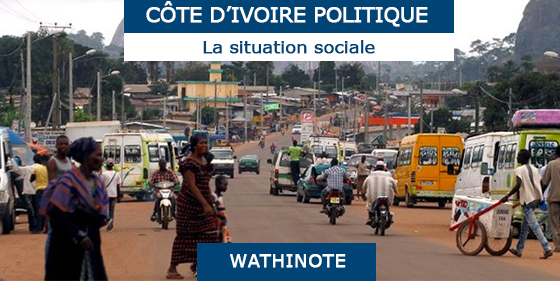Author(s) : Eliane Ekra
Affiliated Organisation : Catholic University of West African
Publication Type : Report
Link for the original document
*Wathinotes are excerpts from publications chosen by WATHI and conform to the original documents. The reports used for the development of the Wathinotes are selected by WATHI based on their relevance to the country context. All Wathinotes refer to original and integral publications that are not hosted by the WATHI website, and are intended to promote the reading of these documents, which are the result of the research work of academics and experts.
“When the West sneezes, Africa catches a cold” This is because our continent is affected the most by all of these types of crises, above all in that which is most essential, the family. In our tradition, marriage is even more the affair of the extended family than that of the actual individuals called to form a family. This conception of the family derives from the fact that in Africa the individual is identified and often valued by the groups to which he or she belongs : by his or her lineage, age group, the size of his or her family, etc. Such considerations are very relevant in ordinary African society.
“When the West sneezes, Africa catches a cold”
Most people see marriage as being oriented towards having children, with a view to revitalizing society in 1964, monogamous unions and the nuclear family were legislated in order to protect Ivorian women and to inaugurate the advent of a modern form of society As a result, some couples now ‘skip’ over necessary steps in order to live together, and to have so-called ‘protected’ sexual relations.
The Western model of the nuclear family does not really exist in Ivory Coast, and this is not a bad thing in itself. However the urban setting, which provides very little space compared to the open spaces that Africans are used to, often contributes to excessive proximity between families and a corresponding lack of privacy.
This conception of the family derives from the fact that in Africa the individual is identified and often valued by the groups to which he or she belongs : by his or her lineage, age group, the size of his or her family, etc. Such considerations are very relevant in ordinary African society
The increasing poverty of disadvantaged families in urban settings leads young children to live away from home, as they have to venture out in search of their daily bread. From the perspective of Blessed Josemaría’s teachings, one can see that it is in fact the entire family that must unite its efforts to help each member live a common adventure through the thousand and one things of ordinary life at home […].
The Western model of the nuclear family does not really exist in Ivory Coast, and this is not a bad thing in itself
To love the family and to struggle to promote it is indispensible. As the Pope has pointed out, loving the family means recognizing the dangers and the evils which threaten it in order to overcome them, and working to ensure an environment which is favourable for its development.


Commenter